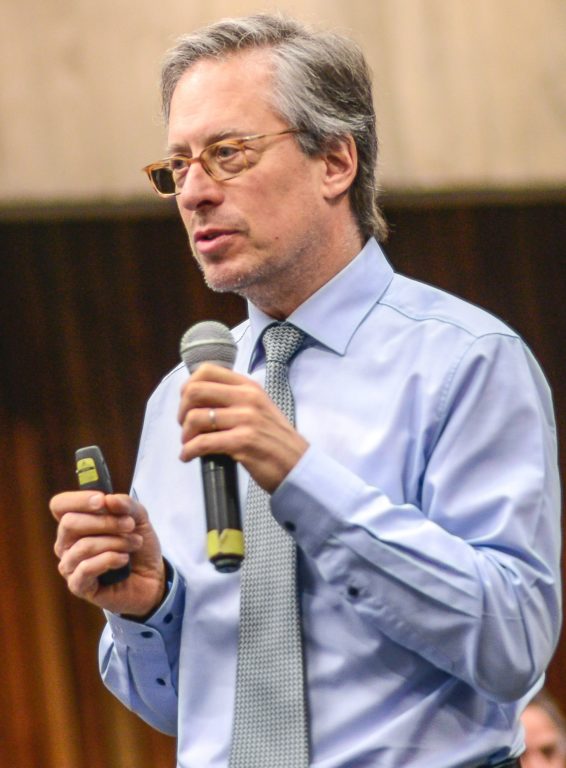How Can Futures Literacy Support the Future of Cash?
The agenda of the Future of Cash conference, 21-22 April in Madrid, covers all of the topics that one might hope for from a range of outstanding speakers. The organisers have gone further though, and for the first time at an industry conference, are partnering with international expert futurists to support delegates to design their own approach and strategy for the future of cashMoney in physical form such as banknotes and coins. More.
What is Futures Literacy?
UNESCO is one organisation that is pioneering a powerful changeThis is the action by which certain banknotes and/or coins are exchanged for the same amount in banknotes/coins of a different face value, or unit value. See Exchange. More in why and how organisations and people are anticipating the future. Since 2012, it has been championing the concept of futures literacy, as a skillset that enables organisations to better understand the role that the future plays and develop the tools and methods to use the future to solve a particular challenge
Riel Miller, Head of Futures Literacy at UNESCO, will give an introduction to Futures Literacy and how it applies to the future of cash. Riel is one of the world’s leading authorities on the theory and practice of using the future to change what people see and do. He is recognised as an innovative and globally experienced project initiator, designer and manager, and is widely published in academic journals and other media on a range of topics, including moneyFrom the Latin word moneta, nickname that was given by Romans to the goddess Juno because there was a minting workshop next to her temple. Money is any item that is generally accepted as payment for goods and services and repayment of debts, such as taxes, in a particular region, country or socio-economic context. Its onset dates back to the origins of humanity and its physical representation has taken on very varied forms until the appearance of metal coins. The banknote, a typical representati... More. In 2002, Riel co-authored the OECD paperSee Banknote paper. More ‘The Future of Money’ and in 2006, he co-authored ‘The Future of Smart Payments’ with Guillaume Lepecq. The Future of Money still remains topical today; for instance, it describes Singapore’s bold move to introduce digital money that is universally accessible, clears in real-time, and allows for peer-to-peer transactions among all economic agents.
The Future Maker’s Workshop
Following Riels’ introduction to futures literacy, delegates will be invited to imagine the future during the ‘Future Makers Workshop’. This is a co-creation session in which participants will look at the changing strategic landscape by practicing futures literacy methods.
The workshop will be facilitated by Demos Helsinki, an independent global think tank working on the transformation of post-industrial societies. It specialises in working with public and private sectors organisations to help them think and co-operate together in entirely new ways.
The Future Makers’ mindset is that without foresight it is not possible to be an active agent for change. In the workshop, participants will work together on an exercise that scans and considers the landscape from the immediate out to the horizon. Based on this, participants will create a vision of a desirable future as well as a roadmap to achieve that vision.
The aim of this unique approach is to allow the conference to move from change happening to us, to being part of the change, shaping and influencing it. This is an enormous opportunity, but it requires co-operation and participation from everybody. As Demos Helsinki says: ‘we know the world changes only when people and organisations come together.’
CashTechThe expression was first coined by CashEssentials and is the encounter of cash and technology. It brings together innovative companies who leverage software and modern communications technology to improve cash services: access to cash; acceptance of cash; and the efficiency of the cash cycle for all stakeholders. More: When Cash meets Fintech
Another new initiative at the conference is the so-called CashTech Forum, bringing together innovators, start-ups and scale-ups which are working to keep cash accessible, accepted, easy to use and cost competitive. In particular, the panel discussion entitled ‘Introducing CashTech: When Cash Encounters Fintech’ will gather companies which make use of software and modern technology to provide cash services – including access to cash and acceptance of cash payments – as well as enhancing the efficiency of the cash cycleRepresents the various stages of the lifecycle of cash, from issuance by the central bank, circulation in the economy, to destruction by the central bank. More to share their experience and vision for how technology will shape the future of cash.
